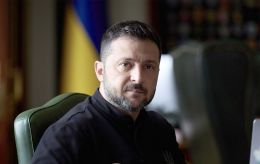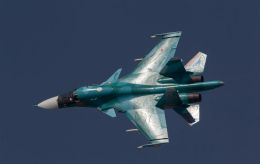Countdown to Putin's tribunal: Who will face justice for war against Ukraine
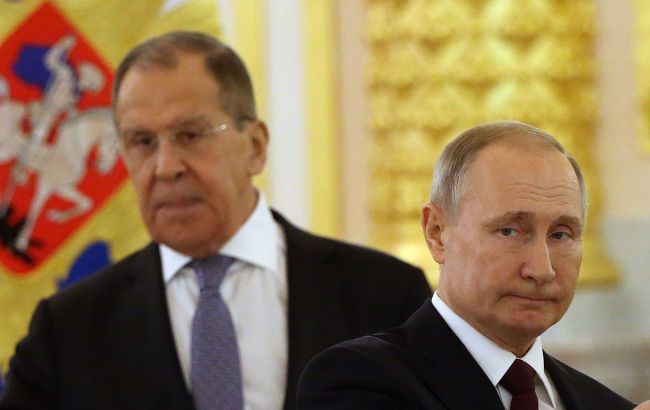 Sergey Lavrov and Vladimir Putin (photo: Getty Images)
Sergey Lavrov and Vladimir Putin (photo: Getty Images)
How will the Special Tribunal against Russia work, why is it being compared to the famous Nuremberg trials, and can the new court imprison Vladimir Putin – read in RBC-Ukraine's article.
Key questions:
- Why did it take so long to establish the Tribunal?
- How will it operate?
- Will Putin be imprisoned?
Discussions about creating a tribunal against Russian aggression began almost immediately after Russia invaded Ukraine. Ukrainian diplomats called on the world to respond to the unprovoked attack and investigate the crimes. The Office of the Ukrainian President immediately set the bar high, calling for the highest military and political leadership of Russia to be brought to justice.
The idea of creating a tribunal was immediately supported by both European countries and the US. But after several years of discussions about which model of court Ukraine's allies were willing to sign up to, the process has effectively stalled. Key European countries and the US were opposed to the creation of an ad hoc tribunal (for this case - ed.). Behind the scenes of the negotiation process, and then publicly, it was said that some states were afraid of setting a precedent.
In addition, there was a problem with the creation of a tribunal under the auspices of the UN. Paradoxical as it may seem, Russia, the aggressor country, has a vote in the United Nations Security Council and can therefore block such decisions.
For a while, the Tribunal was no longer mentioned in public. It seemed that the idea was being shelved. But suddenly, the Council of Europe announced that 40 countries were ready to sign up for the creation of a Special Tribunal to prosecute crimes of Russian aggression. It was immediately compared to the Nuremberg trials, and these parallels are not accidental.
Three years of struggle
Russia invaded Ukraine back in 2014, when it sent its special forces to Donbas and Crimea, quickly seizing the peninsula and part of the Donetsk and Luhansk regions. For 8 years, Ukrainian lawyers tried to prove to international courts that the unmarked soldiers in eastern Ukraine were Russian soldiers.
Countless observers traveled to the combat zone, carefully documenting everything they saw, but this yielded virtually no results. Cases in international courts moved slowly and with difficulty. Meanwhile, the Kremlin denied any direct involvement in the fighting in Ukraine, while Russian politicians, including Vladimir Putin, continued to travel and meet with representatives of the highest international establishment.
But in 2022, Russia invaded Ukraine full-scale so openly and demonstratively that there were no skeptics left. Moscow showed its true colors, revealing to the world its real intentions regarding Ukraine: to capture and subjugate it, and if that fails, to destroy it.
On February 26, two days after the Russian invasion, Ukraine filed a lawsuit against Russia in the UN International Criminal Court. On February 27, President Volodymyr Zelenskyy stated that the crimes committed by Russians in Ukraine would be brought before an international tribunal. In September 2022, Zelenskyy, speaking before UN members, proposed the creation of a special tribunal to investigate Russia's attack on Ukraine.
A crime has been committed against Ukraine, and Ukraine demands justice, Zelenskyy said, speaking via video link to UN delegates.
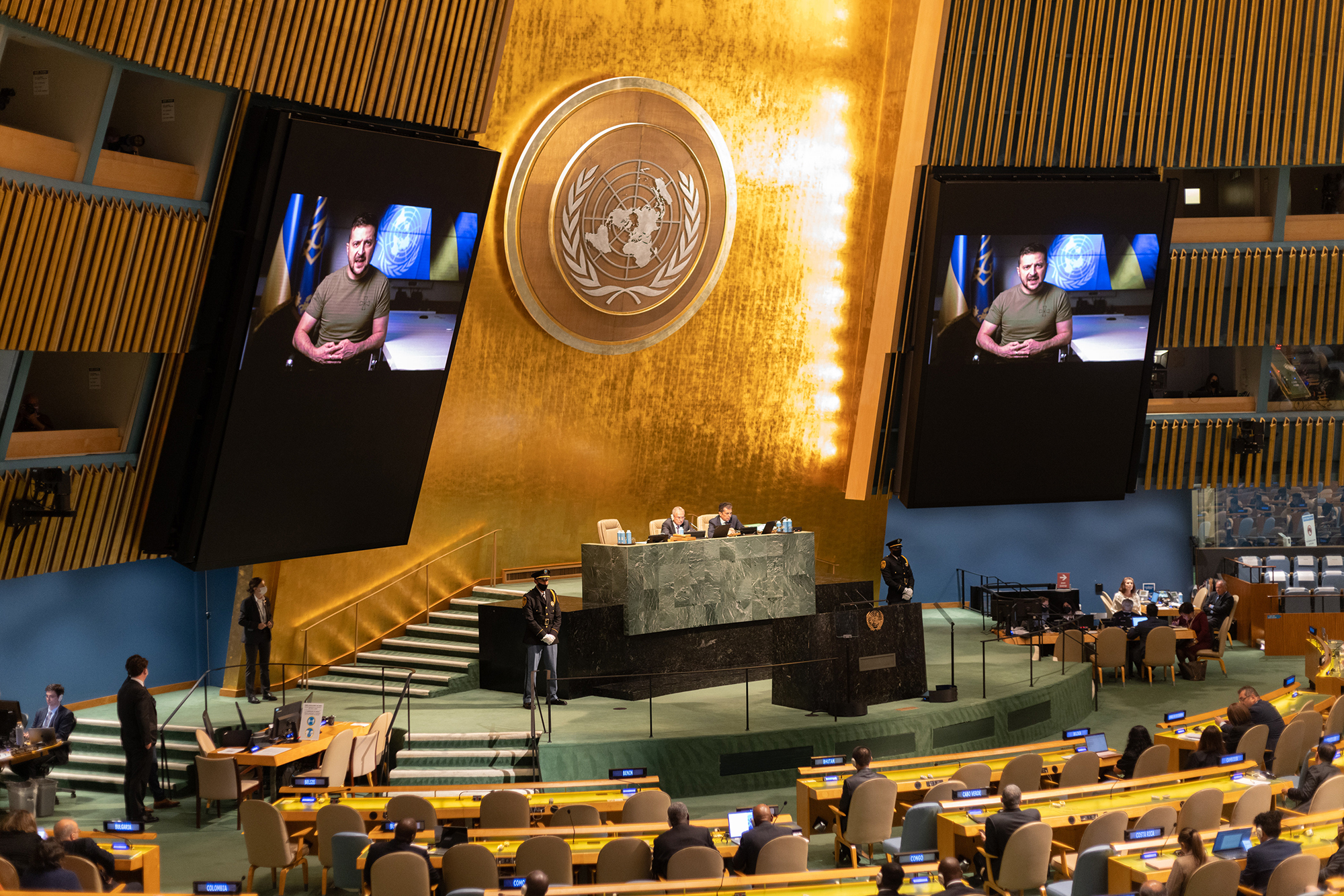 President Zelenskyy speaks at the UN (Photo: Getty Images)
President Zelenskyy speaks at the UN (Photo: Getty Images)
At the same time, Zelenskyy proposed depriving Russia of its veto power as a member of the UN Security Council. Such a step in the future would help to establish a tribunal based on a United Nations decision, as was the case with the tribunals for the former Yugoslavia, Rwanda, and Lebanon.
Evidence of Russia's crimes against Ukraine has been collected literally from the first days of the full-scale invasion. With each month of the offensive, the Russian military revealed new facets of cruelty. The international community was shocked by what the Armed Forces of Ukraine discovered after the Russian occupation of part of the Kyiv region, and news of the Russian massacre in Bucha dominated the front pages of the world's media.
Then there was the Russian occupation and liberation of Kherson, the exhumation of bodies in Izium and Hostomel, the destruction of Mariupol, Russian strikes on high-rise buildings, and shopping centers, and many other crimes beyond the bounds of humanity. It was impossible not to notice how Russia was waging a demonstratively cruel war. Under such circumstances, it seemed that the advisability of creating a tribunal was not up for debate, and that agreement on the most effective model would be reached quickly. But it did not happen quickly.
A year and a half after the start of Russia's full-scale invasion, Ukraine's partners still could not decide on the format of the tribunal. There were three options on the table: a UN General Assembly resolution, a broad international treaty with a declaration, and a hybrid option.
The third option was categorically unacceptable to us, as former Deputy Head of the Ukrainian President's Office Andrii Smyrnov said at the time. The fact is that the third format provided for war criminals to be tried in the Ukrainian judicial system, with the possibility of involving an international component. First, this would have required amendments to the Constitution, which is impossible to do during wartime. Second, the legal assessment of Russia's crime could have been narrowed down to the level of an interstate conflict between two countries.
"We do not need a tribunal decision in the name of Ukraine; we need a tribunal decision in the name of the civilized world. We categorically reject this version of a hybrid tribunal. We are discussing the other versions of an internationalized model," Smyrnov added in an interview with RBC-Ukraine at the time.
Several key countries immediately spoke out in favor of the hybrid option: the United Kingdom, France, Japan, Australia, Italy, Germany, and the United States. The issue was not so much about supporting the hybrid format of the tribunal as it was about the unwillingness to create an ad hoc court. The reason was fear of setting a precedent.
"They are afraid of setting a precedent for themselves. So that individual countries do not initiate something similar and begin to conduct a historical audit of various events, let's call it that," Smyrnov said at the time.
This was the situation in 2023. For some time, Ukraine fought at the UN for the right to a fair trial of the aggressor, but the matter was blocked by the Security Council, where Russia, as a permanent member, has the right of veto. It was not only this fact that prevented the Organization from establishing the Tribunal by its own decision.
Back in 2016, the General Assembly managed to bypass the Security Council, which blocked the investigation into the war in Syria. The General Assembly also authorized the UN Secretary-General to negotiate the establishment of separate tribunals for Cambodia and Sierra Leone. But here we are talking about Russia, and it has much more influence. Therefore, supporters of the Tribunal had to look for alternative ways.
In January 2025, the Office of the Ukrainian President announced that the model of the Tribunal had been agreed upon. It was a second format — a Special Tribunal, which would operate based on an international treaty between a large number of states.
"It will be created based on an agreement with the Council of Europe because there were heated discussions about the model of the Tribunal - whether it would be international or internationalized. Therefore, the model based on the agreement with the Council of Europe will be considered international, that is, it will be an international tribunal," said Deputy Head of the Presidential Office Iryna Mudra in an interview with RBC-Ukraine at the time.
At the same time, Donald Trump won the presidential election in the US, and the US effectively stopped supporting Ukraine's intention to prosecute Russia. According to Washington, Moscow would not want to talk about peace while being tried in Europe, even in absentia. At that time, the new US administration had not yet considered the possibility that Moscow did not want to discuss peace in principle.
"The White House has refused to endorse the Special Tribunal explicitly. However, it is important to note that there has not been an attempt to “kill” it; the White House has allowed the Tribunal to exist. This is an improvement from earlier this year when the US voted against a UNGA resolution that referenced Russian aggression and a special tribunal, arguing that such language hindered peace talks," emphasizes Mark Ellis, Executive Director of the International Bar Association and an expert in international law.
Europe, which is accustomed to relying on the American position, froze, but not for long. Realizing that America would not criticize or pressure the Kremlin for the time being, European leaders took on this role themselves.
In May 2025, ministers from several dozen European countries came to Lviv to sign an agreement, which was later symbolically named the Lviv Declaration. During the meeting, the foreign ministers approved the creation of a Special Tribunal based on the agreement. Thus, the Tribunal acquired international status.
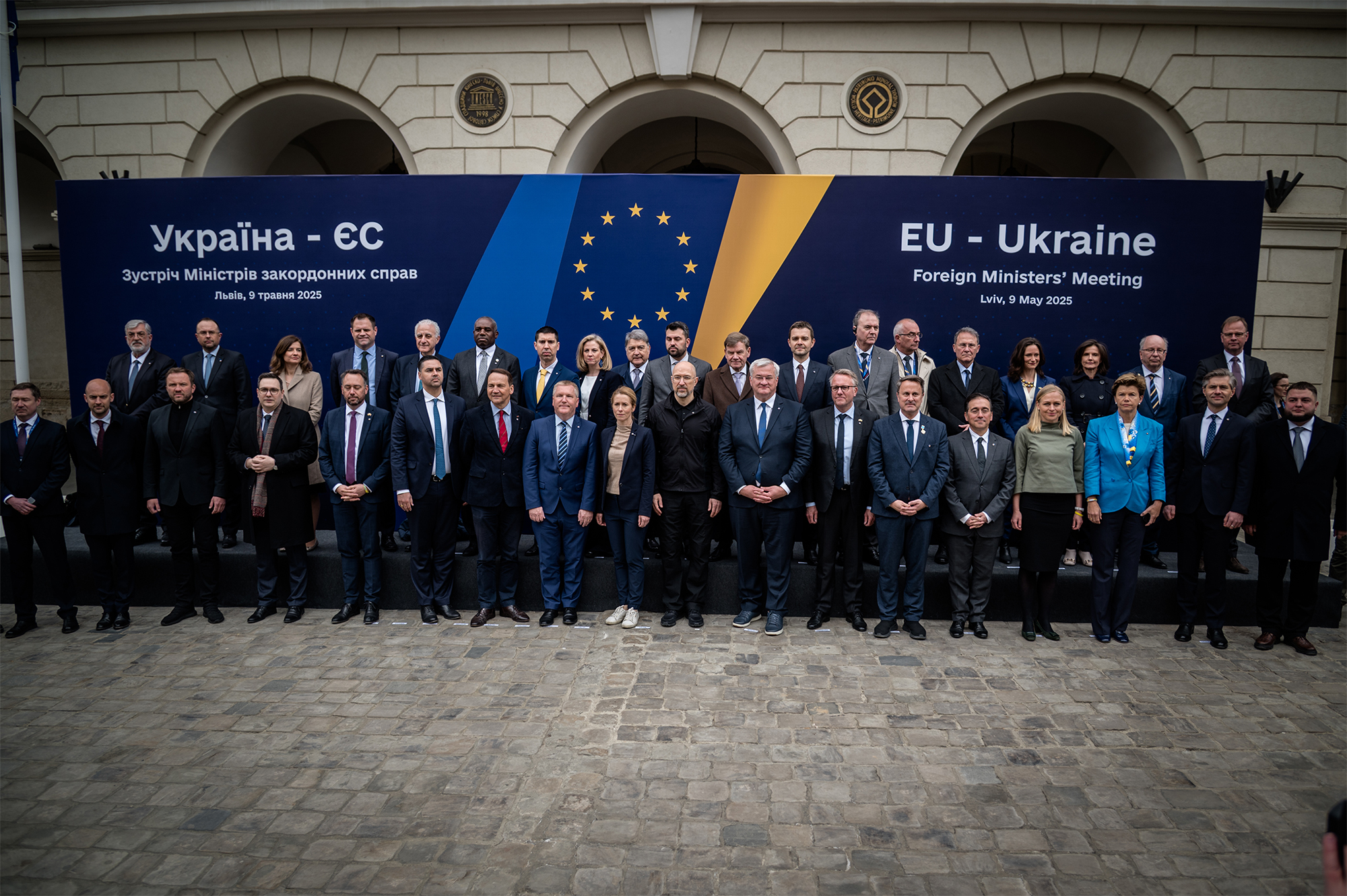 Foreign ministers during their visit to Lviv on May 9 (photo: Getty Images)
Foreign ministers during their visit to Lviv on May 9 (photo: Getty Images)
Working scheme
The Special Tribunal, which is to be established by the Enlarged Partial Agreement of the Council of Europe, will investigate exclusively the crime of aggression, i.e., the very fact of Russia's attack on Ukraine. War crimes, as well as crimes against humanity, will be considered by the International Criminal Court or national courts with the appropriate jurisdiction.
"Only the crime of aggression falls under the jurisdiction of the tribunal. This crime refers to the decision to use armed force against another state, in violation of the UN Charter. It is considered a “leadership crime,” meaning that it concerns those in positions of power who made or facilitated the decision to go to war," the Council of Europe's press service explained in a comment to RBC-Ukraine.
Now, following the declaration of political will by 40 states to condemn Russia, a lengthy ratification process will begin in the parliaments of each of the signatory countries. This process will take a long time, which is why the EU High Representative for Foreign Affairs Kaja Kallas spoke in Lviv about the Tribunal starting its work as early as 2026.
After ratification, an equally lengthy process of selecting judges and prosecutors will begin, although it is likely that candidates already exist. According to the Council of Europe, these will be lawyers of high moral standing.
Member states of the Tribunal's Steering Committee may propose their protégés, who are not required to be citizens of member states. The list will include 15 judges, who will be elected by secret ballot for a term of nine years. The prosecutor will be elected in the same way, but for a term of 7 years without the possibility of re-election.
Many refer to this Tribunal as the second Nuremberg. And indeed, its operating model is similar to that of the Nuremberg trials, in which Nazi political leaders were tried. But there are differences, and they are critical.
Almost Nuremberg
The very basis of the Special Tribunal on Aggression was laid down by the Nuremberg trials. At its core lies a simple principle: responsibility for an attack lies with the top Russian leadership. Thus, 24 top leaders of the Third Reich were tried in Nuremberg: Hermann Göring, who was considered second only to Hitler and who created the Gestapo and the Luftwaffe; Joachim von Ribbentrop, Minister of Foreign Affairs; Deputy Führer Rudolf Hess, Wilhelm Keitel, Chief of Staff of the Supreme Command of the Wehrmacht, as well as those responsible for the economy, industry, propaganda, and even the Hitler Youth.
In Russia, there is the so-called trinity — President Vladimir Putin, Foreign Minister Sergey Lavrov, and Prime Minister Mikhail Mishustin. All three have diplomatic immunity, which means that they cannot be prosecuted or convicted of any crimes while they hold office. No matter what they do, no one will prosecute them in Russia or anywhere else.
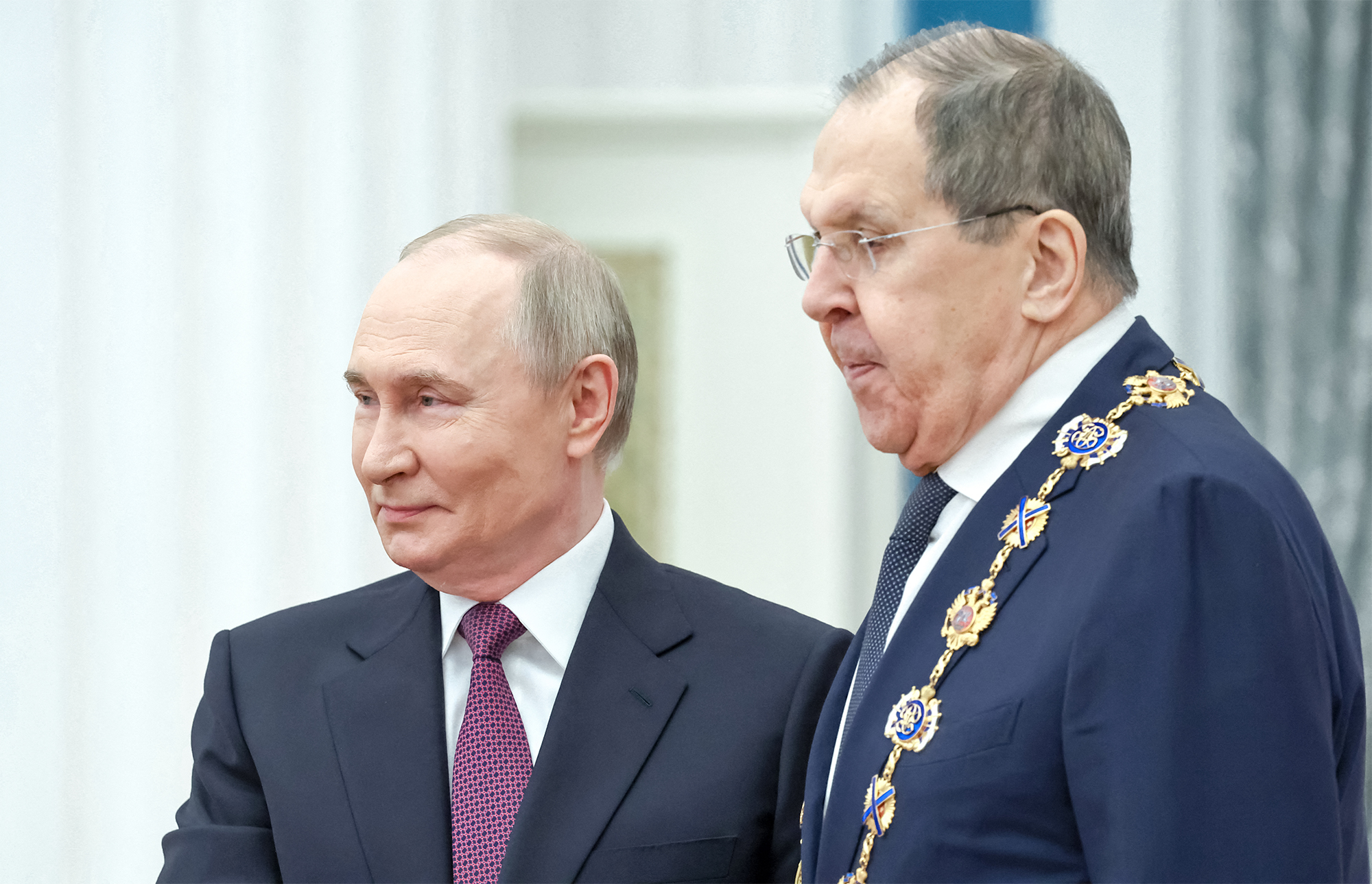 Putin and Lavrov (Photo: Getty Images)
Putin and Lavrov (Photo: Getty Images)
When the coalition of states defeated Germany and its few allies in World War II in 1945, the fate of its leadership was obvious. There was no question that anyone could be protected by diplomatic immunity because everyone had the same goal: to prosecute those who started one of the most brutal and largest wars in world history. The countries were united in this because millions of citizens of various states had suffered. This is one of the main differences between the Nuremberg trials and today's Special Tribunal for Russia — so far, only Ukraine has suffered the most from Moscow's actions.
"Nuremberg emerged from a world that was triumphant and unified in its desire to establish a new world legal order. In contrast, the Special Tribunal reflects a fragmented world legal order where Europe feels compelled to act because the international community, as a whole, has failed to do so," Ellis says.
In addition, Nuremberg took place after Germany's defeat. The diplomatic immunity of Hitler's associates ended with the collapse of the Third Reich. In today's reality, the situation is somewhat different — Putin still rules the country. And although his legitimacy is questioned by the democratic world, diplomatic protection does not nullify these questions.
For a long time, the very issue of immunity was a stumbling block in discussions about the Tribunal. Even when the coalition decided on the format, the question of how to try the Russian trinity was a subject of controversy. Ukraine's allies did not even agree to a trial in absentia. But gradually, a consensus was reached in the disputes — Putin's crime will be investigated, and an indictment will be drawn up based on the results. However, the Tribunal will not be able to try him in absentia while he is still in power.
"For members of the Troika, an indictment can not be confirmed while they remain in office. No arrest warrant would be issued in such cases, and the pre-trial judge would be required to suspend proceedings until the individual leaves their position," Ellis notes.
Another difference between Nuremberg and the Tribunal against Putin is the absence of the death penalty. At the 1946 trial, 12 of the 24 criminals were executed. The maximum punishment for Putin is life imprisonment. Unfortunately, this is very unlikely.
"Yes, we are realists and understand that Putin, Lukashenko, or Kim Jong Un are unlikely to voluntarily appear in the dock. But that does not mean that the Court is meaningless. On the contrary, it is of strategic importance," says Iryna Mudra in a comment to RBC-Ukraine.
In addition to immunity, Putin wields his tacit influence over some European, Asian, and African countries. The fact that the international justice system is fundamentally flawed became clear when the International Criminal Court issued an arrest warrant for the Russian dictator. The reason for issuing the warrant was chosen to be as sensitive as possible — the abduction of Ukrainian children. But even that could not influence the special affection of certain politicians for Putin.
For example, he was not arrested in Mongolia, even though it had signed up to the obligations to comply with the ICC's decisions. Hungarian Prime Minister Viktor Orbán, a long-time admirer of the Russian leader, said he would gladly welcome Putin to his country, even though Hungary should also arrest him. Some other politicians have made similar statements. This whole story has harmed the authority of international law and the judicial system.
Putin's immunity does not protect him from prosecution in countries that have ratified the Rome Statute and, accordingly, must comply with the decisions of the ICC. This is stated in one of the articles of the statute. In other words, if the International Court has decided to issue an arrest warrant for Putin, it means that it has more than sufficient grounds to do so, as this effectively revokes his immunity.
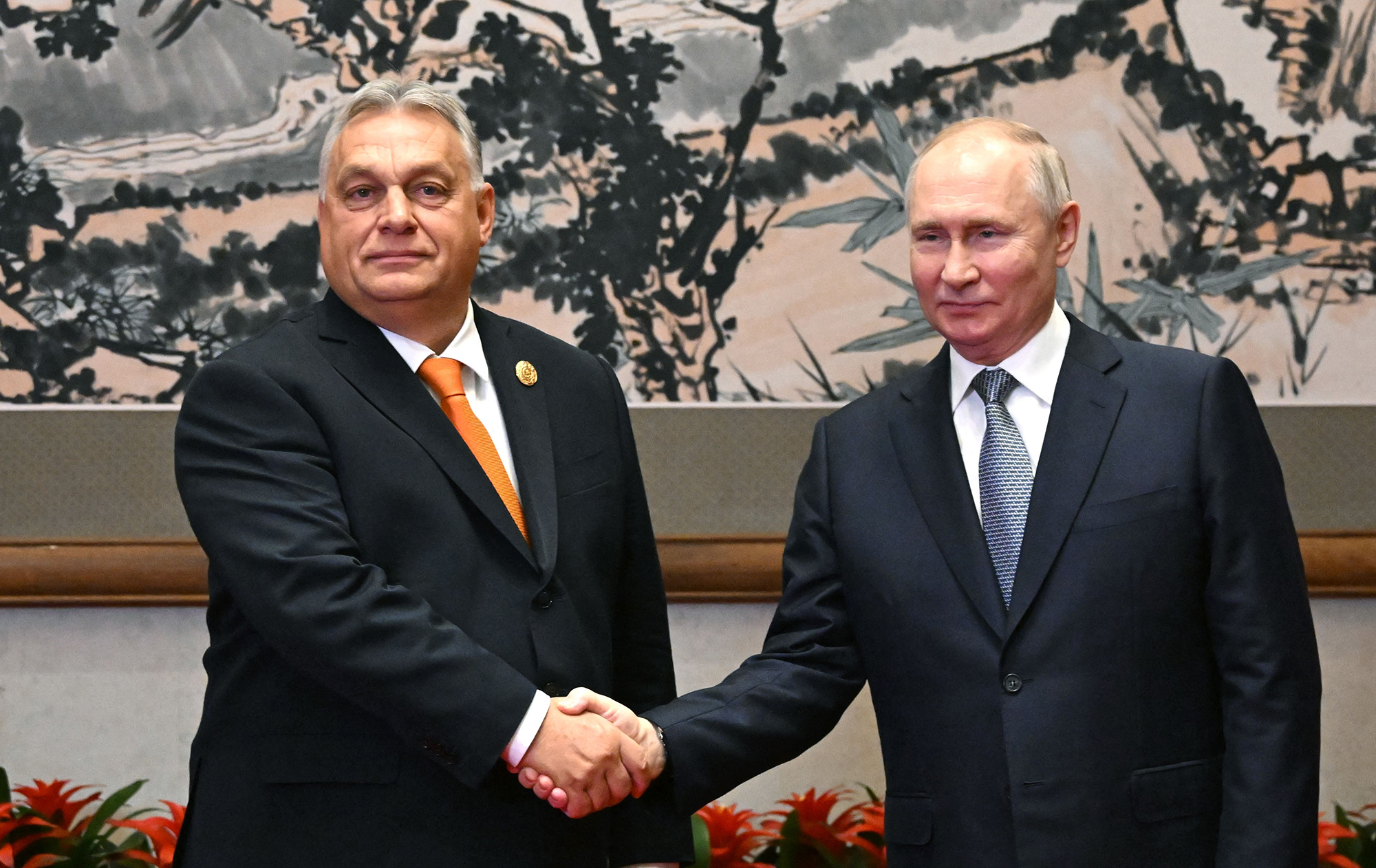 Putin and Orbán (Photo: Getty Images)
Putin and Orbán (Photo: Getty Images)
But lawyers emphasize one very important point: international justice is a long game. History shows that villains who seemed untouchable by justice until the very end ended up in the dock. Serbian leaders Slobodan Milošević and Radovan Karadžić, Liberian President Charles Taylor, Iraqi leader Saddam Hussein, and Holocaust architect Adolf Eichmann were all eventually convicted. There is no statute of limitations for a tribunal against aggression in any form.
"I always remember what the historian Francine Hirsch observed about Nuremberg. Its value was not only in punishment but also in creating a detailed record of the truth. The Special Tribunal’s documentation will counter Moscow's disinformation and will educate the world about Russia’s aggression by issuing well-supported indictments and ultimately delivering verdicts that affirm the principle of accountability," Mark Ellis added.
***
Ukraine has been in a situation for more than 3 years where it has had to prove that a war is going on. In the first weeks of Russia's full-scale invasion of Ukraine, the Ukrainian leadership sent photos of destroyed buildings and dead people to their foreign colleagues to make it clear how severe and brutal the situation was. No one could believe that Russia would do what it is doing today.
Moreover, Europe never wanted to quarrel with Russia. Moscow attacked Chechnya, occupied parts of Moldova and Georgia, bombed Aleppo in Syria, and in 2014 seized Ukraine's Donbas and Crimea. Despite all this, trade continued with Russia, the Kremlin was listened to, and Putin was respectfully shaken hands with. This carefully constructed relationship between Moscow and the West lasted for years and was regularly reinforced by a wide variety of diplomatic instruments, from the opening of the Russian House in Madrid to behind-the-scenes talks and promises of strong friendship.
Therefore, the entire process from the adoption of the very idea of the Tribunal to its launch took more than 3 years — no one dared to condemn Russia. In a few years, Europe had to step on its own throat and begin to destroy the solid architecture of its relations with Moscow. The effectiveness of the Tribunal over Putin will show how successful it was.
Sources: Deputy Head of the Office of the President of Ukraine, Iryna Mudra, the Executive Director of the International Bar Association, legal expert Mark Ellis, comments from the press service of the Council of Europe, and information from open sources.
